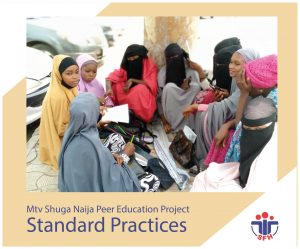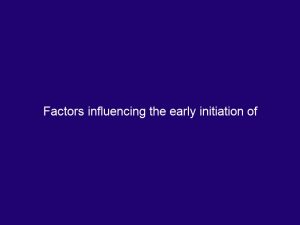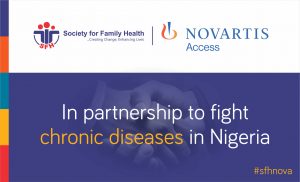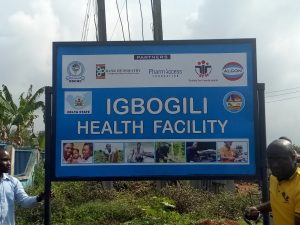MTV Shuga Naija Peer Education Project, funded by the Bill & Melinda Gates Foundation (BMGF) and the Children’s Investment Fund Foundation (CIFF), led by MTV Stay Alive Foundation (MTV SAF) and implemented by Society for Family Health in Nigeria, aims to improve knowledge, attitudes and behaviours with regards to reproductive health with a particular focus on adolescent girls (15-19) and young women (20-24).
Goal: Increasing adoption of healthy and positive behaviours by young persons aged 15 to 24 years through adolescent reproductive health topics addressed in the MTV Shuga Naija TV series.
MTV Shuga adopts the use of mass-media approach as a means of changing the behaviours of young people. MTV Shuga educates youths on reproductive health, creates HIV/AIDS awareness, and ensures that this is followed through a voluntary uptake of referrals to health and social services. With these, there have been proven impact of demand-creation among our audience using the MTV Shuga Naija TV Series.
ADVOCACY:
- Substantial advocacy to all stakeholders from state to local government, to communities, and down to street leaders resulted in high levels of acceptance and support towards the mobilization of peers. Also, the advocacy to government parastatals created a better working environment and enabled us to provide necessary help to peers in need.
CONFIDENTIALITY OF PERSONAL ISSUES
- Confidentiality means that the peer educators keeps the adolescent’s sensitive personal and health issues private. Ensuring the secrecy of peer sessions and encouraging other peer educators to create a space for the peers to feel safe opening up and sharing their experiences. The use of matured peer educators who were able to proficiently handle the issues of the peers boosted their confidence; knowing very well that they were not just sharing their experiences but also would get the necessary help they needed.
- In order to motivate the peers to open up on their “deep” secrets, peer educators were mandated to ensure that the venues used for the sessions are calm and devoid of sounds and third-party interference.
- Based on lessons learnt and part of the skills developed during the peer educators training, PEs know the importance of keeping sensitive information disclosed to them during sessions.
- Peers were referred to youth friendly health facilities, where the health providers have been trained on providing youth friendly services.
CREATING INCOME GENERATION ACTIVITIES (IGA)
- To sustain the interest of peers, skills acquisition training was introduced. This drew the attention of many peers to the peer sessions because of their vested interests. It also helped parents feel like there was more to the project than just sex education. It helped parents understand that the project meant well for their children.
CREATING SOCIAL GROUPS
- Peer groups such as peer clubs where peers could discuss on their own and with little to no interference of peer educators or state project team made more peers seek to partake in the peer sessions.
CREATING SOCIAL MEDIA PLATFORMS
- WhatsApp groups were created across project States to keep the peers together and constantly remind them of the topics discussed during the sessions and keep the knowledge afresh in their minds.
TREATING ADOLESCENT (PEERS) WITH RESPECT
- Respectful treatment is critical as adolescents are particularly sensitive to rude, judgmental, or overbearing attitudes and behaviours on the part of peer educators and health providers. In fact, such attitudes and behaviors can cause adolescents to:
- Leave the peer sessions without completing it
- Refuse to visit or complete clinical appointment
PEs were taught to manage their fellow peers’ emotions and situations, never to be judgmental but rather show always empathy.
Peers were referred only to health facilities whose providers were trained either by SFH or a sister organization to provide youth friendly services.
PROMOTE PARENT-CHILD COMMUNICATION
Improving parent-child communication about sexuality, drug use, and other critical health issues is an important aspect of the work of many peer education programmes, peer educators and health providers.
As part of the lessons taught in the MTV Shuga Naija series, peers were encouraged to share their problems with their parents or caregivers, as this would foster intimacy among them and could subsequently reduce incidence of Gender Based Violence (GBV), unintended pregnancy, rape etc.
MONITORING AND MENTORSHIP
These were centered on monitoring projects field activities and ensuring smooth implementation in line with the desired objectives. These helped in addressing some program implementation gaps during field supervisions and monthly review meetings.
Provision of timely technical assistance to state teams by home office and donors helped in the delivery of program objectives.
Peoples cultures, norms and religions played a major role during project activities. Although most of the peers had belief in the family planning program but it was discovered that often they do not always know how to go about it. However, MTV SHUGA peer education project had to key into these beliefs (culture, norms and religion) of the people and played a strong role in correcting the misconceptions they had about Family Planning.
With the level of exposure availed by the MTV SHUGA peer education project, peers have been able to correct their wrong and long-held beliefs, perceptions and myths about family planning. After about one-week of the MTV SHUGA education project activities, peers voluntarily began to demand for FP services based on what they had learnt.
With the success of the project activities in Kano State, we were able to record a remarkable achievement in terms of FP program in the months of January and February 2020. In these wo months, most of the peers took up FP methods including had implants and injectables etc.
In summary, we learnt:
- Not to use peers who are not matured enough to handle discussion topics as peer educators
- The importance of putting community stakeholders at the fore front, for a workable environment.
To engage peers from the communities of intervention as peer educators in their communities for easy mobilization of peers.








